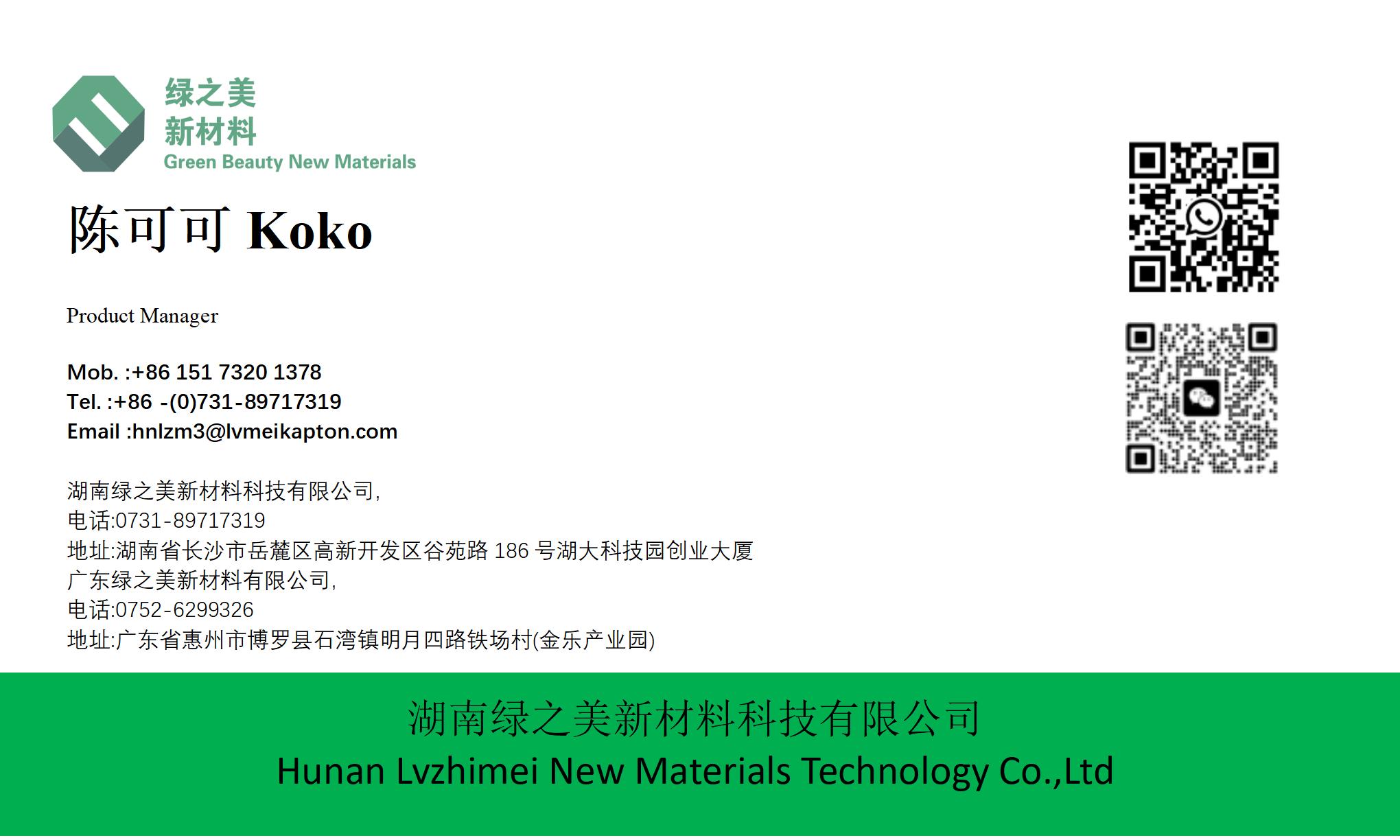



Why Is Tensile Strength a Critical Specification for B2B Buyers Sourcing Polyimide Tape for Gold Finger Applications? |https://www.lvmeikapton.com
The Criticality of Tensile Strength for B2B Buyers Sourcing Polyimide Tape for Gold Finger Applications
Introduction
In the intricate landscape of electronics manufacturing, the selection of materials plays a pivotal role in ensuring the reliability and performance of end products. Polyimide tape, known for its exceptional thermal stability, chemical resistance, and mechanical properties, is a critical component in various applications, particularly in the protection of gold finger contacts on printed circuit boards (PCBs). For Business-to-Business (B2B)采购团队, sourcing polyimide tape that meets stringent specifications is essential to maintaining production efficiency, product quality, and overall business competitiveness. Among the various properties, tensile strength emerges as a non-negotiable criterion, significantly influencing the tape's performance in gold finger applications.
Understanding Tensile Strength
Tensile strength is a material property that measures the maximum stress a material can withstand before breaking when subjected to a pulling force. It is typically expressed in units of force per unit area, such as pounds per square inch (psi) or megapascals (MPa). For polyimide tape, tensile strength is crucial as it indicates the tape's ability to resist stretching and tearing during application and throughout the product's lifecycle. In the context of gold finger applications, where tape is used to protect delicate contact surfaces during manufacturing and handling, high tensile strength ensures that the tape remains intact and functional, preventing damage to the gold fingers and maintaining the integrity of the electrical connections.
Importance of Tensile Strength in Gold Finger Applications
1.
Prevention of Tape Failure During Manufacturing
○
High-Volume Production Challenges: Electronics manufacturing often involves high-speed, automated processes that subject materials to significant mechanical stress. Polyimide tape with inadequate tensile strength may tear, stretch, or delaminate during these processes, leading to tape failure and potential damage to the gold fingers.
○
Cost Implications of Tape Failure: Tape failure can result in costly production delays, material waste, and increased rework. For instance, a contract manufacturer producing 10,000 PCBs monthly could incur losses exceeding $50,000 from a single batch of low-tensile tape that results in 5% gold finger defects. These losses include the cost of scrapped PCBs, additional labor for rework, and potential penalties for missed delivery deadlines.
2.
Ensuring Long-Term Reliability of Electrical Connections
○
Protection Against Environmental Factors: Gold finger contacts are susceptible to damage from environmental factors such as moisture, dust, and chemicals. Polyimide tape with high tensile strength provides a robust barrier, ensuring that the gold fingers remain protected and functional over the product's lifespan.
○
Minimizing Risk of Electrical Failures: Tape failure can lead to exposed gold fingers, increasing the risk of electrical shorts and failures. High tensile strength tape reduces this risk by maintaining a secure and consistent protective layer, ensuring reliable electrical connections.
3.
Supporting Supply Chain Efficiency and Risk Management
○
Supplier Reliability: B2B buyers prioritize suppliers who provide certified tensile strength specifications, as this ensures consistency and reliability in the quality of the tape. Reliable suppliers minimize the risk of production disruptions and quality issues, contributing to a stable and efficient supply chain.
○
Risk Mitigation: Specifying high tensile strength as a critical requirement helps mitigate the risk of sourcing substandard materials. By setting clear and stringent specifications, B2B buyers can ensure that the tape meets the performance requirements of their applications, reducing the likelihood of costly failures and rework.
Impact of Tensile Strength on Production Efficiency and Cost
1.
Reduced Downtime and Material Waste
○
Minimized Production Delays: High tensile strength tape is less prone to failure during manufacturing processes, reducing the likelihood of production line stoppages and delays. This results in improved production efficiency and higher throughput.
○
Lower Material Waste: Tape failure can lead to significant material waste, as defective PCBs may need to be scrapped or reworked. By using tape with adequate tensile strength, manufacturers can minimize material waste and associated costs.
2.
Enhanced Product Quality and Customer Satisfaction
○
Consistent Performance: Polyimide tape with high tensile strength ensures consistent performance throughout the manufacturing and product lifecycle, leading to higher quality end products.
○
Customer Confidence: Reliable and high-quality products enhance customer satisfaction and confidence, fostering long-term business relationships and repeat orders.
Case Studies and Examples
1.
Case Study: Contract Manufacturer's Experience with Low-Tensile Tape
○
Scenario: A contract manufacturer experienced frequent tape failures during the production of PCBs with gold finger applications. The tape would tear and delaminate, leading to gold finger damage and increased rework.
○
Impact: The manufacturer incurred significant costs due to production delays, material waste, and increased labor for rework. Customer satisfaction was also impacted, as delivery deadlines were missed.
○
Solution: After switching to a supplier providing polyimide tape with higher tensile strength, the manufacturer experienced a significant reduction in tape failures, improved production efficiency, and higher product quality.
2.
Example: Comparison of Tensile Strength Specifications
○
Table: Tensile Strength Comparison of Different Polyimide Tapes
Tape Supplier | Tensile Strength (psi) | Application Performance |
Supplier A | 100 | Frequent failures during high-speed processes |
Supplier B | 150 | Occasional failures, acceptable performance |
Supplier C | 200 | Reliable performance, minimal failures |
Supplier D | 250 | Excellent performance, no failures reported |
●
Analysis: The table illustrates the impact of tensile strength on application performance. Tape from Supplier D, with the highest tensile strength, demonstrates the most reliable performance, minimizing the risk of tape failures and associated costs.
Best Practices for Sourcing Polyimide Tape with Optimal Tensile Strength
1.
Define Clear Specifications
○
Application Requirements: Clearly define the tensile strength requirements based on the specific application and manufacturing processes. Consider factors such as the speed of production lines, environmental conditions, and expected product lifecycle.
○
Industry Standards: Reference relevant industry standards and guidelines to ensure that the specified tensile strength meets or exceeds the required performance criteria.
2.
Conduct Supplier Audits and Evaluations
○
Supplier Capability: Evaluate potential suppliers based on their ability to consistently meet the specified tensile strength requirements. Conduct audits of their manufacturing processes, quality control measures, and testing capabilities.
○
Certification and Documentation: Ensure that suppliers provide certified documentation of tensile strength testing, including test methods and results.
3.
Perform In-House Testing and Validation
○
Sample Testing: Request samples from potential suppliers and conduct in-house testing to validate the tensile strength and overall performance of the tape in your specific applications.
○
Pilot Runs: Conduct pilot runs using the tape to assess its performance in actual production conditions before making a large-scale purchase.
4.
Establish Long-Term Relationships with Reliable Suppliers
○
Continuous Improvement: Work with suppliers who are committed to continuous improvement and innovation in their products and processes. Regularly review and update specifications to ensure that the tape continues to meet evolving application requirements.
○
Communication and Collaboration: Foster open lines of communication and collaboration with suppliers to address any issues or concerns promptly and effectively.
Conclusion
Tensile strength is a critical specification for B2B buyers sourcing polyimide tape for gold finger applications. It plays a vital role in ensuring the reliability and performance of the tape throughout the manufacturing and product lifecycle, minimizing the risk of tape failures, production delays, and costly rework. By prioritizing tensile strength in their sourcing decisions, B2B采购团队 can enhance production efficiency, improve product quality, and mitigate business risks, contributing to the overall success and competitiveness of their organizations. Implementing best practices for sourcing polyimide tape with optimal tensile strength ensures a stable and efficient supply chain, fostering long-term business relationships and customer satisfaction.
References
●
LVMEIKAPTON: https://www.lvmeikapton.com/
●
Industry Standards and Guidelines: Refer to relevant standards such as ASTM D882 for testing tensile properties of thin plastic films.
●
Case Studies and Examples: Based on industry experiences and data from electronics manufacturing companies.

Material | Temperature Resistance (°C) | Flexibility | Chemical Resistance | Electrical Insulation |
PI Tape | Up to 300°C | High | Excellent | Excellent |
Ceramic Tape | Up to 1000°C | Low | Good | Good |
Glass Cloth Tape | Up to 500°C | Medium | Good | Good |
Aluminum Foil Tape | Up to 200°C | Low | Fair | Poor |





